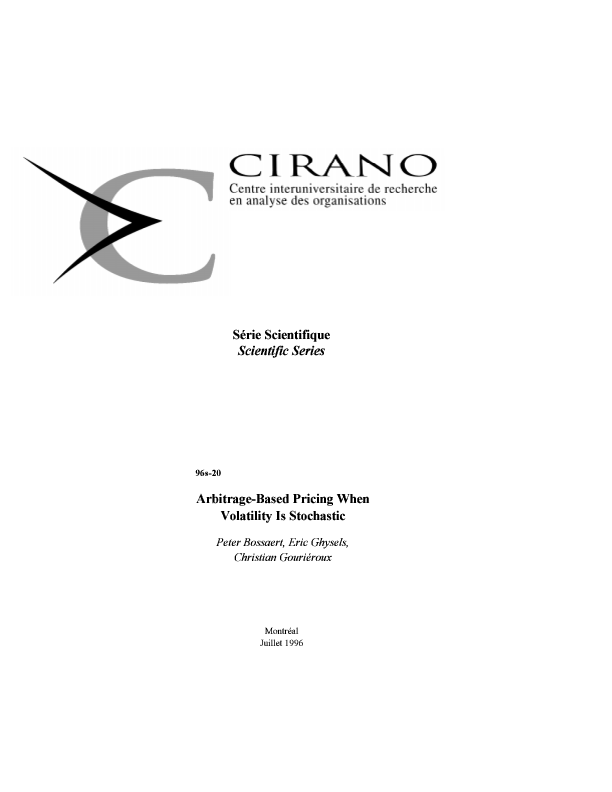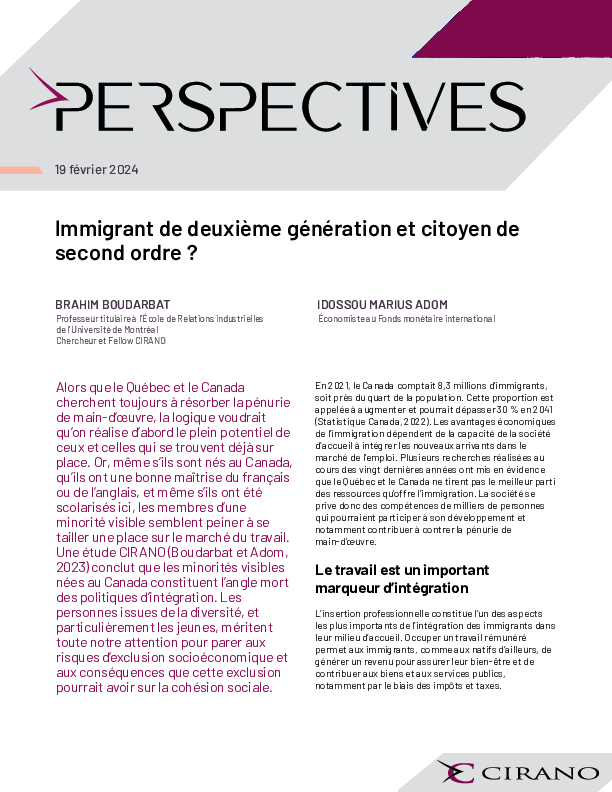Arbitrage Based Pricing When Volatility Is Stochastic
One of the early examples of stochastic volatility models is Clark [1973]. He suggested that asset price movements should be tied to the rate at which transactions occur. To accomplish this, he made a distinction between transaction time and calendar time. This framework has hitherto been relatively unexploited to study derivative security pricing. This paper studies the implications of absence of arbitrage in economies where: (i) trade takes place in transaction time, (ii) there is a single state variable whose transaction-time price path is binomial, (iii) there are risk-free bonds with calendar-time maturities, and (iv) the relation between transaction time and calendar time is stochastic. The state variable could be interpreted in various ways. For example, it could be the price of a share of stock, as in Black and Scholes [1973], or a factor that summarizes changes in the investment opportunity set, as in Cox, Ingersoll and Ross [1985], or one that drives changes in the term structure of interest rates (Ho and Lee [1986], Heath, Jarrow and Morton [1992]). Property (iv) generally introduces stochastic volatility in the process of the state variable when recorded in calendar time. The paper investigates the pricing of derivative securities with calendar-time maturity. The restrictions obtained in Merton (1973) using simple buy-and-hold arbitrage portfolio arguments do not necessarily hold. Conditions are derived for all derivatives to be priced by dynamic arbitrage, i.e., for market completeness in the sense of Harrison and Pliska [1981]. A particular class of stationary economies where markets are indeed complete is characterized.
[ - ]




